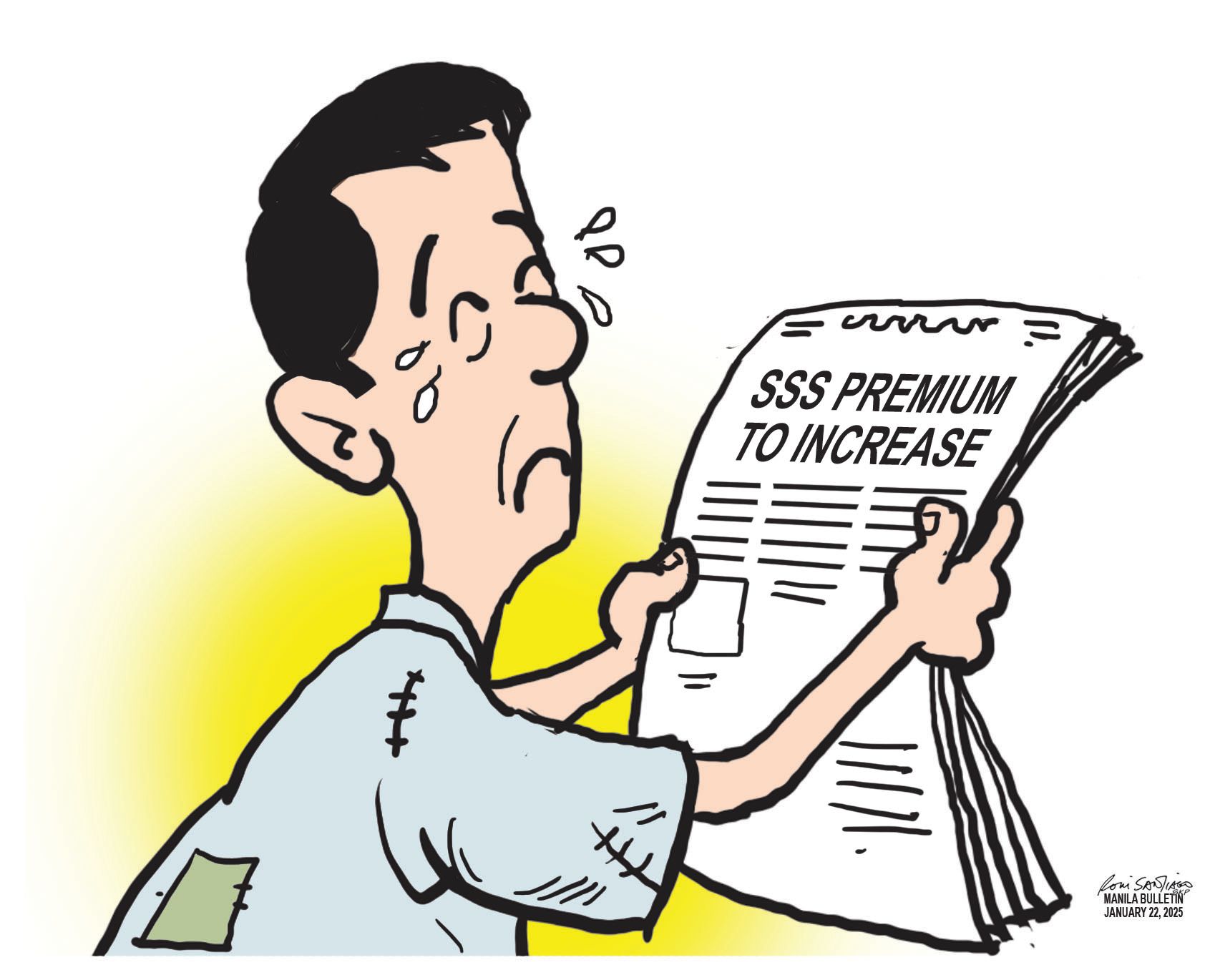
Amid the economic turbulence that continues to batter Filipinos, especially the low-income earners, the call to suspend the implementation of the one-percent Social Security System (SSS) premium increase continues to gain ground.
Two resolutions have been filed separately in the House of Representatives, while other lawmakers and personalities have joined the call.
This call is a moral imperative, an act of compassion toward the millions of Filipino workers struggling to make ends meet and their employers who are still in recovery mode.
The SSS premium increase comes at a time when many are grappling with a skyrocketing cost of living. The rationale behind the premium hike, which is part of a mandated increase every year, is ostensibly to ensure the financial stability of the SSS and secure future benefits for the nation’s workers. But the reality on the ground paints a more complicated picture.
The burden on workers who are already facing inflation, wage stagnation, and high unemployment is undeniable. For many, the promise of higher future benefits from the SSS seems distant and abstract compared to the immediate pressures of feeding their families, paying for school tuition, and covering the soaring costs of daily necessities. A premium increase of even just one percent could spell a big difference for low-wage earners who live paycheck to paycheck.
In the face of this, it is worth asking: What is more urgent — future security or the present survival of Filipino families?
The government must think about the human cost of the premium increases. The simple fact is that the Filipino worker is already shouldering too much. According to figures from the National Economic and Development Authority (NEDA), inflation rates have made the basic basket of goods increasingly out of reach for many families. The rise in fuel, food, and utility costs continues to tighten the noose around the neck of every wage earner. By increasing premiums at this juncture, we risk pushing families further into poverty, rather than helping them save for the future.
The increase will particularly hurt low-income workers. In these workers' eyes, the future promises of better pensions and benefits pale in comparison to the tangible suffering they experience today. A small increase in premium may seem negligible to policy-makers and higher earners, but for a large segment of the population, that “small increase” could be the difference between putting food on the table or going hungry.
Suspending the premium increase would be an act of empathy and practicality, recognizing that the short-term relief it provides is far more critical for the welfare of millions of families. It is time for policymakers to rethink the balance between the future solvency of the SSS and the immediate needs of Filipino workers.
Opponents of suspension will argue that the SSS needs this increase to secure its long-term financial stability. However, this viewpoint, while grounded in fiscal responsibility, ignores the immediate and pressing challenges that workers face.
The SSS remains the most significant social safety net in the country. If it is to be a true safety net, it must take into account the real-world consequences of its policies. Moreover, there are ways for the SSS to adapt without having to rely solely on premium increases. It could offset revenue loss due to suspension by enhanced revenue generation efforts and strategic investments by the SSS itself. This could involve restructuring the SSS’s investment strategy to maximize returns, offering targeted assistance to the agency, or even reassessing the overall rate of contribution increases to better match the economic realities faced by the Filipino public.
What we are calling for is not a permanent halt to the SSS’s mission of financial sustainability but rather a compassionate pause, a more humane approach — an opportunity to recalibrate the system in light of the present struggles of Filipino workers. In times of crisis, the state must always prioritize the immediate welfare of its people, especially those who form the backbone of its economy. It is not enough to build systems that work for the future if they fail to serve the present.